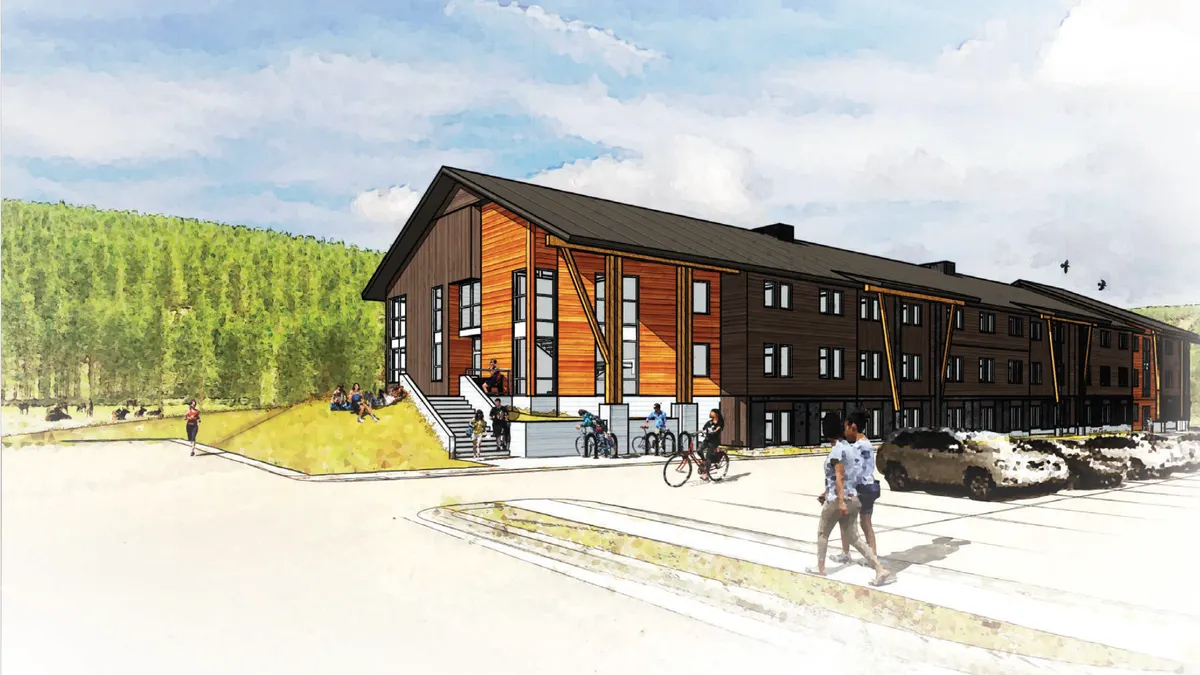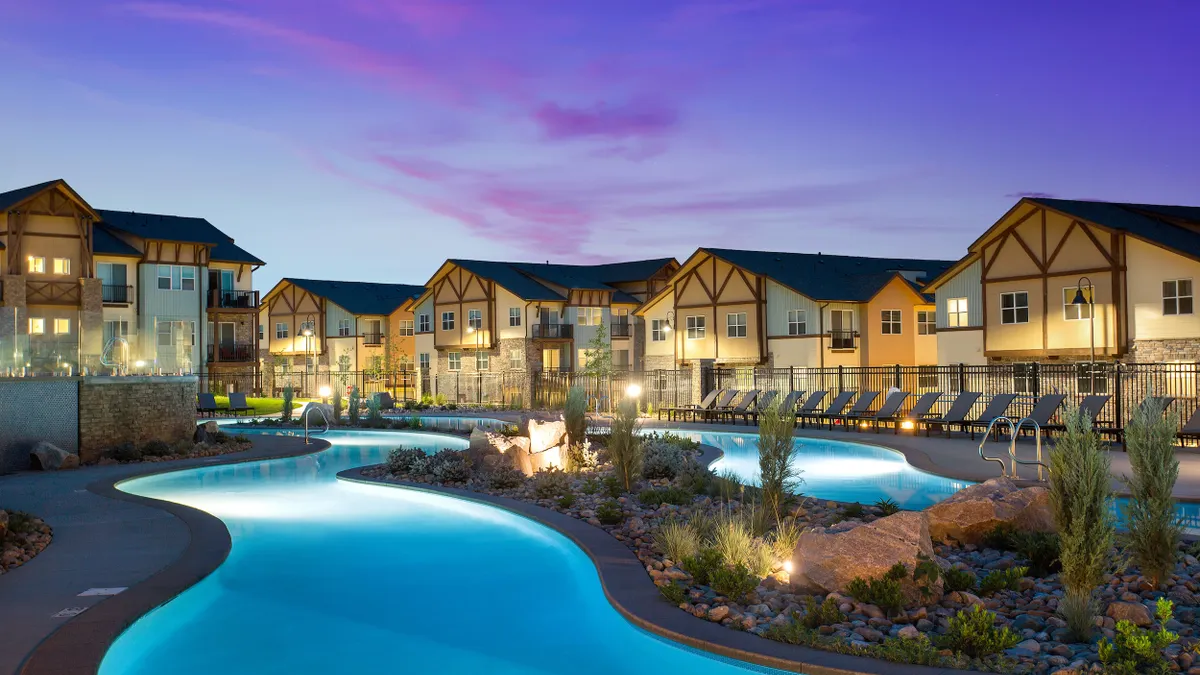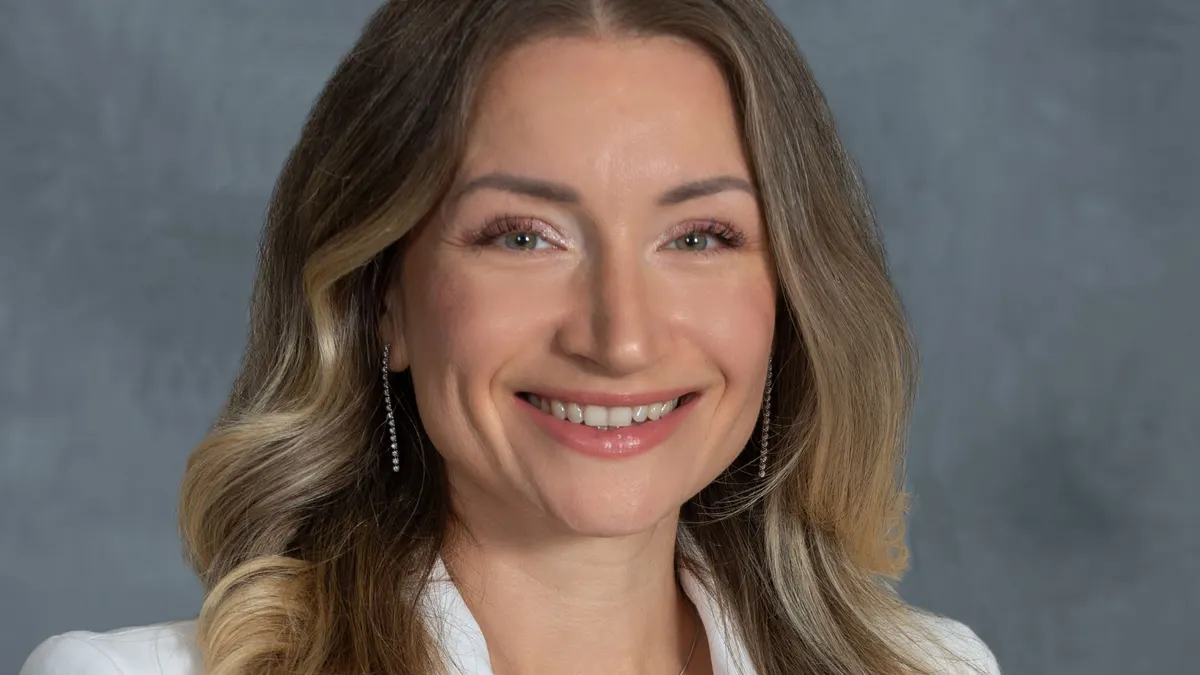Property managers have more to worry about as the weather gets colder than just raking leaves. For operators in all but the mildest locales, the fall means preparing properties for the snow and freezing temperatures to come.
Multifamily Dive spoke to property management and facilities executives at a handful of companies to get their take on the most important steps for winter preparation. Here are four of the most important tips they shared with us:
Communicate and train
It is essential to communicate expectations to both residents and on-site teams, even if the message seems obvious.
Athens, Georgia-based student housing developer, owner and operator Landmark Properties has a large student portfolio, which means the vast majority of its residents are living on their own for the first time, so it's necessary to take the time to remind them not to leave their windows open when they leave for winter breaks.
“We had a particular asset that had to deal with a pipe freeze on Christmas Eve last year,” said Jonathan Bove, an executive vice president at Landmark Properties. “There was a scramble when most folks were not in the building. But thankfully, the vendor was able to help us out.”

Providing updated information for on-site staffers is also important. Atlanta-based manager RangeWater Real Estate ensures that all utility shutoff maps posted in the leasing office and maintenance shop are correct, up-to-date and legible, according to Chris Moffett, director of property services and capital projects for property management at the company.
Moffett said it's also important to make sure keys or special tools to access water shutoff locations or vaults are readily accessible and clear of mud or debris. “The entire team is trained multiple times a year on utility shutoff locations and how to use special tools if present to shut off water and power, if necessary,” Moffett said.
Plan early
If you’re buying supplies a couple of days before the first big snowstorm of the year, it's too late.
“We buy salt early,” said Diane Batayeh, CEO of Southfield, Michigan-based apartment manager Village Green. “We're buying when people are not even thinking about buying it in a bulk purchase manner. We’re getting everybody to stock up so that they're not worried about that and paying for that [at the last minute].”
RangeWater also plans ahead for snowstorms. “Snow removal plans and ice-melt deployment plans are reviewed and revised if needed at the beginning of the fall and winter seasons as lessons may have been learned from previous years’ storms or conditions,” Moffett said.

Discussions with vendors for winter services can also begin in the fall. “We’re negotiating all of our snow removal contracts,” Batayeh said.
Village Green also determines whether it needs contracts for bulk services. “We're always analyzing historical trends and figuring out what's the most efficient way to do it,” Batayeh said.
Avoid freezing pipes
Alerting residents that they shouldn’t keep their windows open when they’re gone in the fall and winter isn’t the only step operators take to avoid frozen pipes. Moffett recommends thermostats be turned into heating mode and set at 60 to 65 degrees.
“For the vacant units, depending on the condition of the unit and its utilities, additional measures may be required," Moffett said. “This is very specific to the unit and condition and can include means as aggressive as draining lines and shutting off water.”
In preparation for winter storms or freezing conditions, RangeWater takes further action. “If temperatures are expected to drop below freezing levels for more than a day, faucets in the units should be turned on to a slow drip to prevent lines from freezing,” Moffett said. “Cabinets with plumbing inside need to be opened to allow heat to enter.”
Companies can also take action with exterior systems. RangeWater shuts off exterior hose bibs located on the sides of buildings, parking garages and roofs and installs undulating covers if the faucets aren’t freezeproof. It also readies all fire sprinkler systems for freezing temperatures.
“This may include an uptick in how often drum drips are drained, checking heaters and even the possibility of draining sprinkler lines and going on fire watch if a client elects and the fire marshal approved for extreme weather events,” Moffett said.
Switching on the heat
As the weather turns colder, many managers prepare to switch their systems from air conditioning to heat. In the process, they’re doing preventive maintenance.
“This is the time of year we’re doing filter changes,” said Cindy Clare, chief operating officer for Greensboro, North Carolina-based owner and manager Bell Partners. “When we're doing filter changes, we check the systems and make sure that the switch over to heat is going to be easier.”
Even in apartment communities with individual systems that allow the residents to control the switchover, fall maintenance is necessary.

“Most of our properties have individual systems,” Clare said. “So the residents can turn on the heat whenever they choose to. And we want to make sure when they turn it on, it's going to work.”
For Village Green, heating and air conditioning checks are part of a bigger preventative maintenance push in the fall. “You're preparing for the winter months,” Batayeh said. “You're looking at the asphalt. You're looking at all the heating systems and hot water boilers and things of that nature. You’re looking at things maybe in the early stages of deferred maintenance and just taking care of it.”
Click here to sign up to receive multifamily and apartment news like this article in your inbox every weekday.

















